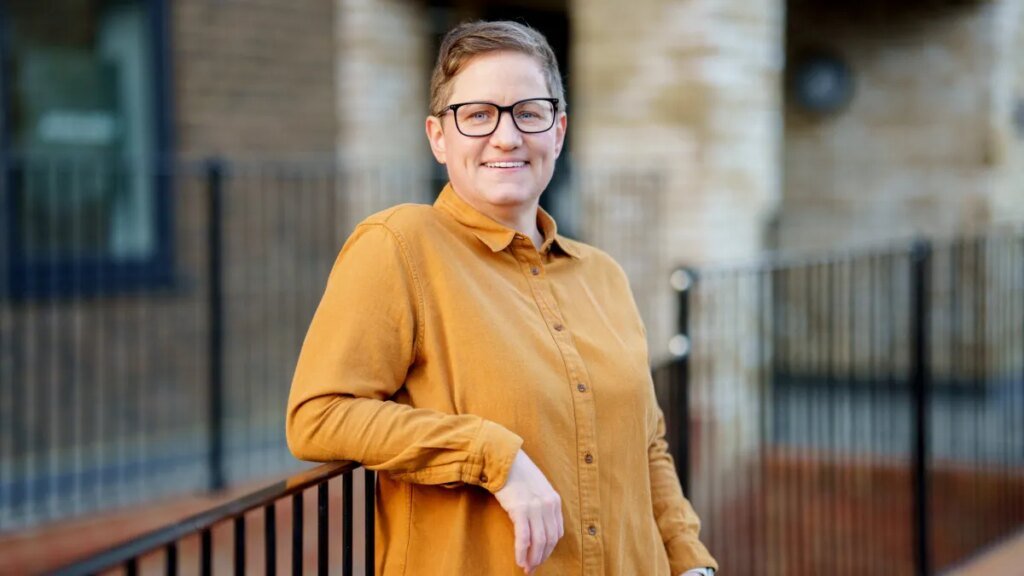More people, like Liz Johnson, are getting on the property ladder later in life, research shows
Although she longed for a home of her own, Liz Johnson spent most of her adult life assuming that buying a property was out of reach.
It wasn’t until her 40s that homeownership finally became possible.
Liz was 43 when she took out her first mortgage, having previously rented a room from friends in London paying £600 a month.
Speaking to The i Paper, the office manager, originally from Canterbury, said: “Initially I was happy renting a room from my friends but as I got older, I wanted my own space.”
Like many would-be buyers, the main obstacle was saving for a deposit – a barrier that property experts say is increasingly common as high rents drain disposable income.
Combined with other pressures, including higher stamp duty, it has pushed more first-time buyers into later life.
New research from Santander shows that 22 per cent of first-time buyers are now over 40, up from 18 per cent last year.
In contrast, purchases by those under 25 have fallen steeply, dropping by 23 per cent in just twelve months.
Living in the capital, Liz felt locked out by rising rents and soaring house prices – until her financial circumstances shifted.
She explained: “Changes in my work situation and a number of promotions allowed me to begin the saving process.
“Once I’d begun thinking about buying and mentioning it to my family, my older brothers offered to help with the deposit which sped up the process significantly.
“I started saving around the beginning of 2023, I put a portion of that year’s bonus into an ISA. I did the same in the following year and I also put aside £500 per month into a separate savings account. By the beginning of 2025 I had approximately £22,000 in savings.”
Liz added: “Once I’d paid off my car finance, I was able to use that amount in any calculations too.
“Once I’d spoken to my family and my brother’s offering to help with my deposit, I spoke with a mortgage broker to see how much I’d be able to borrow.
“When I knew that, I could look at locations and the market to see what I could get.”
Eventually she bought a two-bedroom apartment at The Quarry in south-east London for £370,000, putting down a £53,250 deposit. Her mortgage payments come to £1,650 a month.
Why are first-time buyers getting older?
House prices have almost doubled in the past two decades, rising 98 per cent, according to the Office for National Statistics (ONS).
It found that in March this year, the average UK home cost £283,000. Back in March 2004 – when the typical first-time buyer was 32 – the average price in England was just £142,571.
Wages have not kept pace. According to the ONS, only 9.1 per cent of UK local authorities have homes priced at less than five times the average worker’s disposable income.
The squeeze may be worse for those looking to buy their first home. Zoopla data shows prices for properties commonly bought by first-time buyers have risen 2.4 per cent in the past year, outstripping the national average of 1.3 per cent.
Stamp duty changes introduced in April have also added pressure, David Morris, head of homes at Santander, said.
He added: “Our data highlights a growing disparity for first-time home ownership, with the gap widening between younger and older generations as the market grapples with the impact of stamp duty changes and a lack of supply.”
While the youngest first-time buyer Santander supported this year was 18, the oldest was 70 – up from 67 in 2024.
Liz says the upheaval has been worth it. She said: “I am really happy. My commute is slightly longer as the distance from home to the train station is further, but I am enjoying that extra exercise.
“I love getting home and knowing that the place is mine and I can decide the décor and what pictures go on the wall and I can be messy if I want as it’s not affecting anyone else. I am also enjoying the responsibility of owning and managing a home.”

Can you be too old to get a mortgage?
Most lenders cap mortgage applications at between 70 and 80 years old, largely because borrowers at that age are unlikely to be in full-time work and are at a higher risk of not being able to pay back their loan because of their age.
Even if they have the income to cover repayments, such as through a pension, lenders see the potential for rapid changes in circumstances as a heightened risk.
For those who do lend, the interest on the loans is likely to be much higher.

